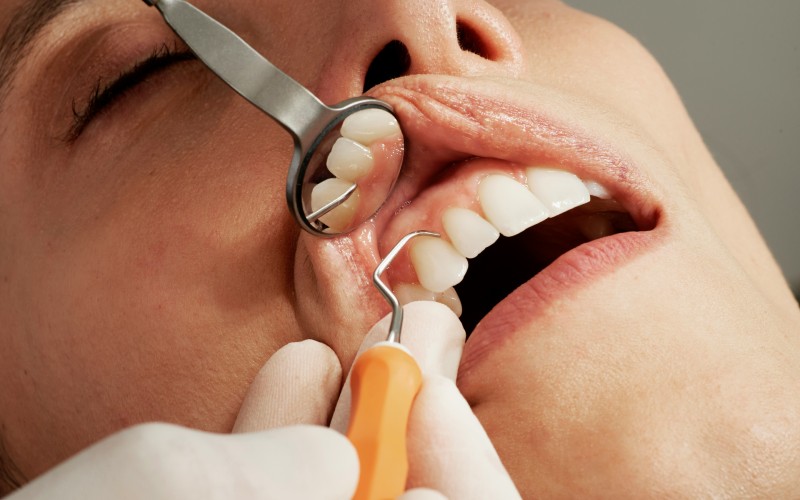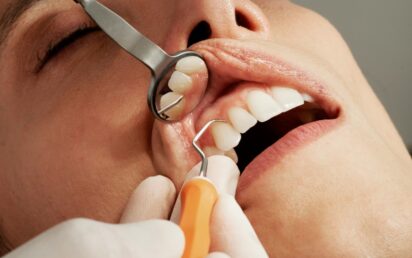You’ve heard the cliché “you are what you eat.”
Well, it turns out, your diet can also affect your oral health as well as your general health.
But how is this possible and what should you be eating and avoiding?
The impact of poor nutrition
If you think about your body like a machine, it needs the right fuel to help keep all of the major systems in order.
A well-balanced diet provides the nutrients you need to function normally in all aspects of your life, be that giving you enough energy to walk the dog after work, enabling you to sleep, to concentrate whilst in that important meeting, and also ensuring the body can maintain everything from normal cell renewal to healing if you have an illness or injury.
Poor nutrition, however, can give your body plenty of fuel but fuel that is low quality and often high in calories.
This can affect your body mass as well as affecting the structures of your mouth.
Why is some food bad for oral health?
Poor nutrition can affect our mouths in multiple ways, including:
- Malnutrition can cause dental problems
Many systematic reviews have found that an inadequate intake of both micro- and macro-nutrients can lead to an increased risk of common dental health problems, such as:
- Gum disease (periodontitis) and gingivitis
- Dental caries (cavities)
- Decayed, filled, or missing teeth
- Hyposalivation or xerostomia (more commonly known as dry mouth)
- Dental infections
As such, if you wish to avoid these common problems, it might be worth considering what you are enjoying throughout the day.
- Excessive consumption can lead to cavities and plaque
We all know that foods heavy in sugar are bad for the teeth, right?
You may not be aware, however, of the impact that the overconsumption of carbohydrates and starches can have on your teeth.
As soon as you start eating, an enzyme called amylase in your saliva helps to break down the sugars found in the carbohydrates and starches, releasing them onto your teeth.
Then, the oral bacteria found naturally within the mouth start to feast on these sugars, producing enamel-weakening acid in the meantime, which can go on to cause cavities.
This process is sometimes referred to as an acid attack – and each time you eat, you can inadvertently be exposing your mouth to further acid attacks if you are eating more harmful foods.
Foods to avoid for better oral health
It isn’t possible, or advised, to avoid all sugar, carbohydrates, and starches to save your smile.
They are an essential food group that is full of macronutrients that help you and your body to have sufficient energy.
It is worth considering your choice of sugars, carbohydrates, and starches, however, as there are more nutritious, less damaging options readily available in most supermarkets. Clever swaps include:
| Swap these… | For these… |
|---|---|
| Refined carbohydrates and starches – such as white bread and rice, crisps, and pastries. | Whole grains – wholemeal bread, brown rice, legumes, and fruit and veg. |
| Refined ‘added’ sugars – such as sweets, desserts, and fizzy drinks | Naturally occurring sugars - such as fructose, which is found in fruits and lactose which comes from dairy. |
It is also worth noting that consuming any kind of sugar, carb, or starch is best limited to main meal times – as you naturally produce more saliva at these times, which can help to wash away food particles.
Similarly, by limiting acid attacks to your main meals, you are limiting the number of chances you have for your teeth to become damaged.
Finally, try to have water at mealtimes, as this will help to rinse the mouth while you eat and stop remnants from collecting on the teeth.
Foods to enjoy that are good for your smile
Wondering if there’s anything you can eat to help your oral health? Read on to find out what you can enjoy!
- Dairy products, like cheese, milk, and yoghurt – which are full of calcium, protein, and some probiotics which strengthen the tooth enamel and can help defeat bad bacteria within the mouth and body.
- Leafy greens, such as kale and spinach – low in calories, yet high in vitamins and minerals, leafy greens can even help to treat gum disease.
- Crunchy vegetables, like carrots and celery – vegetables that are crisp help to stimulate saliva, whilst also providing minerals, vitamins, fibre, and antioxidants. They also help to massage the gums and scrape the teeth to remove food particles and bacteria.
- Apples – like crunchy vegetables, apples are full of goodness, and are satiating (as they are naturally sweet), and the texture can help to clean the mouth and teeth.
- Almonds – low in sugar and full of calcium and proteins, almonds can also help to keep your jaw healthy by tackling tougher foods.
- Lean proteins like salmon and chicken – chock full of protein and other vital vitamins and minerals, lean meats and fish are great for oral health.
Keep your teeth healthy, strong, and stunning with your local dentist
Worried about the impact your diet has made on your oral health?
Maybe it’s time to book an appointment.
From an orthodontist in Hammersmith to an emergency dentist in Richmond, wherever you’re located in London, there are plenty of dental professionals on hand to help you keep your teeth looking and feeling good. Take a look today and get in touch with your local dentist.


